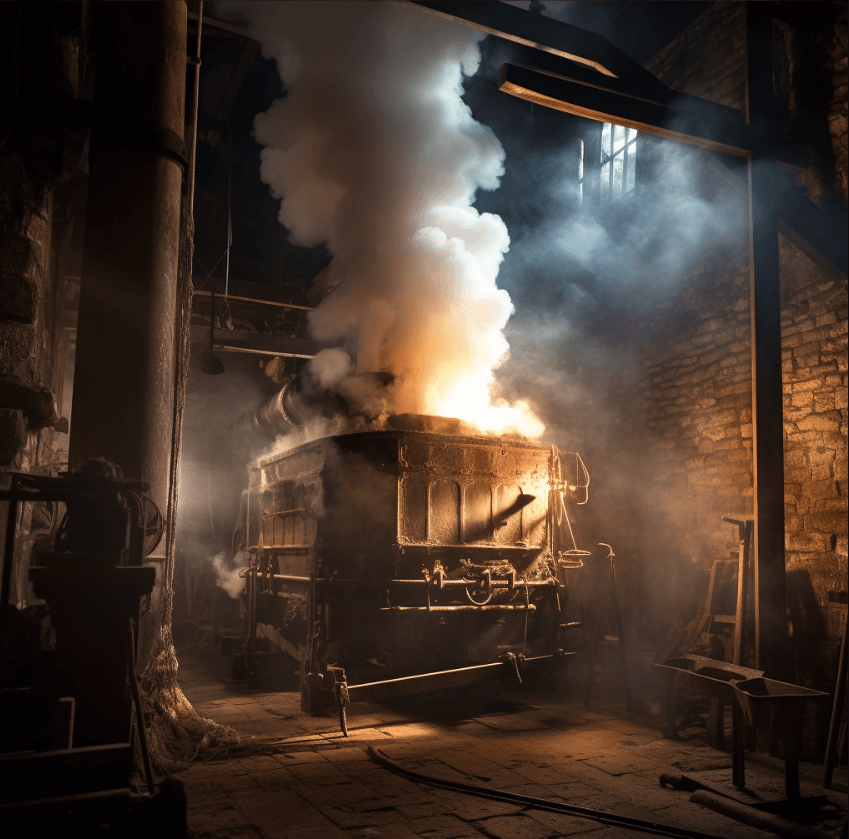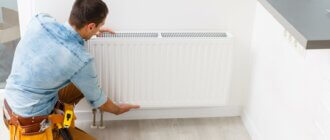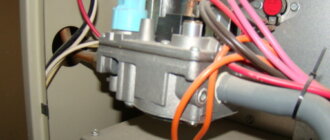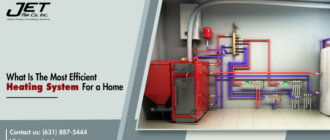What Can A Loud Noise Mean Coming from a Furnace?
As the cold weather sets in, the sound of your furnace working hard to keep you warm is a comforting hum. But what happens when that hum turns into an unsettling clanging or bang? Furnace noises can be alarming and disruptive to your daily routine. Don’t let a loud noise coming from your furnace stress you out! In this blog post, we will explore common types of furnace noises, why they happen, and what steps you can take to prevent them from occurring in the future. Keep reading to learn how regular maintenance can help keep your furnace running smoothly all winter long!
Common Types of Furnace Noises
When it comes to your home’s furnace, hearing strange noises can be a cause for concern. Here are some of the most common types of furnace noises and what they could mean:
Banging or Popping
If you hear banging or popping sounds coming from your furnace, it could be due to an issue with the ductwork. This noise may occur when there is a blockage in the air flow causing pressure buildup.
Screeching or Squealing
A screeching or squealing sound typically means that there is an issue with the blower motor belt. The belt may need tightening or replacing.
Rattling
Rattling sounds can indicate loose parts within the furnace such as screws, bolts, panels, and ducts. These components should be securely fastened to eliminate rattles.
Whistling
Whistling sounds can come from issues with ductwork where air leaks out through cracks and gaps.
It’s important to identify the type of noise before attempting any repairs yourself as some issues require professional attention.
Banging or Popping
Banging or popping sounds coming from your furnace can be alarming, but they are not uncommon. These noises could indicate a variety of issues that may require attention.
One possible cause of banging or popping is dirty burners. When dirt and debris accumulate on the burners, it can create loud bangs when the furnace ignites. This issue can often be resolved with a professional cleaning.
Another potential culprit is a malfunctioning ignition system. If the ignition mechanism is not functioning properly, gas may build up in the furnace before finally igniting and causing a loud pop.
Additionally, loose ductwork or other components within the furnace itself could also result in banging or popping sounds during operation.
It’s important to address any unusual noises coming from your furnace promptly as they could lead to further damage if left unattended. Be sure to schedule regular maintenance appointments with an HVAC professional to keep your system running smoothly and reduce the risk of unexpected repairs in the future.
Screeching or Squealing
Screeching or squealing sounds coming from your furnace can be quite alarming. These noises are often high-pitched and may sound like metal rubbing against metal. If you hear these sounds, it’s important to investigate the cause right away.
One common reason for screeching or squealing noises is a problem with the blower motor. The motor may have worn bearings that need to be lubricated or replaced. Alternatively, there could be an issue with the belt connecting the motor to the blower fan.
Another potential culprit is dirty burners in your furnace. When dirt and debris build up on these components, they can create friction and cause screeching or squealing sounds during operation.
If your furnace has been running continuously without a break, this too can lead to high-pitched noises. Overheating of certain parts such as belts and motors due to extensive use produces unusual noise.
If you’re unsure what’s causing screeching or squealing in your furnace, it’s best to call in a professional for help diagnosing and fixing the issue quickly before any further damage occurs.
Rattling
Rattling is another common noise that can come from your furnace. It’s usually caused by loose or damaged parts, such as screws, bolts, or fan blades.
If the rattling sound is coming from the furnace cabinet itself, it could be a sign that there’s something loose inside. In this case, you should turn off the furnace immediately and call a professional to investigate further.
On the other hand, if the rattling sounds like it’s coming from within the vents or ducts of your home, then it could indicate an issue with airflow within your HVAC system. This could be due to blockages in your air filters or dirty ductwork.
Regular maintenance can help prevent these issues and keep your furnace running smoothly without any loud noises. If you notice any unusual sounds coming from your furnace, don’t hesitate to call a professional for assistance before things get worse!
Whistling
Another type of noise you may hear coming from your furnace is a whistling sound. This often indicates that there is an issue with the airflow in your system. One possible cause of this could be a dirty air filter, which can restrict airflow and create a whistling sound as air tries to pass through.
Another potential culprit for whistling noises is a blocked vent or ductwork. If something is blocking the path of the air, it will create resistance and generate noise as it tries to push its way through. In some cases, this could also be due to gaps or leaks in the ductwork itself.
If you have recently had your furnace serviced or installed new components, it’s possible that adjustments need to be made to ensure proper airflow and eliminate any whistling sounds. A professional HVAC technician can help diagnose and fix these issues for you.
Why is Your Furnace Making Noise?
The sound of a furnace operating can be soothing to some, but when it starts making loud and unusual noises, it’s time to investigate. There are several reasons why your furnace may be making noise.
Mechanical issues could be the culprit behind the noise coming from your furnace. This could include problems with the motor or fan blades. A noisy furnace may also indicate that there is an issue with a belt that drives either component.
Loose or damaged parts can cause rattling sounds in your furnace. If you hear banging or popping noises, these could be caused by expansion and contraction of metal ductwork as it heats up and cools down during operation.
Duct problems can also create whistling sounds in your heating system. Leaks in air ducts due to improper installation or damage will make annoying sounds that you cannot ignore for long.
It’s important to note that sometimes furnaces just make normal operational sounds, such as soft humming or clicking noises when they turn on and off. However, if any of the above factors contribute to unusually loud noises coming from your heating system – don’t ignore them!
Mechanical Issues
One of the most common reasons for a loud noise coming from your furnace is mechanical issues. This can include anything from a faulty blower motor to damaged bearings or belts. When any of these components malfunction, they can cause grinding, humming, or buzzing sounds emanating from your furnace.
A loose or damaged fan belt could also produce rattling noises when the furnace starts up. The belt may need tightening or replacement by an HVAC technician if it’s worn out beyond repair.
Another possible mechanical issue that produces noises is a failing blower motor that causes rumbling and vibration sounds similar to those of a washing machine on spin cycle. If you hear this kind of sound coming from your furnace, it’s time to call in a professional as soon as possible.
To prevent these kinds of mechanical issues in the future, make sure you schedule regular maintenance appointments with an HVAC professional who will inspect all parts and ensure everything runs smoothly without producing unnecessary noise.
Loose or Damaged Parts
Loose or damaged parts are a common cause of loud furnace noises. Over time, the constant vibration of the furnace can loosen bolts and other components, leading to rattling or banging noises. The blower wheel is especially susceptible to becoming loose due to wear and tear.
If you suspect that loose or damaged parts are causing your furnace noise, it’s important to have them repaired as soon as possible. Ignoring the problem could lead to further damage and even more costly repairs down the line.
A trained technician will be able to diagnose which parts need replacing or tightening and make those repairs quickly and efficiently. It’s always best to leave this type of repair work in the hands of a professional rather than attempting it yourself.
Regular maintenance can also help prevent loose or damaged parts from occurring in the first place. By having your furnace serviced annually, any potential issues can be caught early before they turn into bigger problems.
Duct Problems
Duct problems are another potential cause of loud noises coming from your furnace. These issues can arise when there is a blockage or obstruction in the ductwork, causing air to get trapped and create a popping or banging sound.
Another common issue with ducts is leaks, which can cause whistling or hissing sounds as air escapes through small gaps. This not only creates noise but also causes your furnace to work harder than it needs to in order to maintain the desired temperature.
Additionally, if your ductwork is poorly designed or installed, this can lead to increased airflow resistance and subsequently louder operation of your furnace.
It’s important to address any duct issues promptly as they not only affect the efficiency and effectiveness of your heating system but also impact indoor air quality. Regular maintenance by a professional technician can help identify and resolve any underlying issues before they become major problems.
Normal Operational Sounds
It’s natural to hear some sounds coming from your furnace when it’s running. These noises are typically not alarming, and they might even be expected. However, as a homeowner, it is important that you know the difference between normal operational sounds and those that signal potential problems.
For instance, when your furnace turns on or off, you may hear a clicking sound. This noise is caused by the thermostat turning the unit on or off at set temperature intervals. It’s completely normal and nothing to worry about.
Another sound that is common with furnaces is a low hum or whooshing noise when air travels through your ducts. You’re probably familiar with this sound already if you’ve been living in your home for some time.
A slight popping noise can occur during startup or shutdown of the system due to thermal expansion of metal parts within the furnace.
While these noises may be noticeable at first, after some time homeowners will get used to them and understand what sounds are considered normal operations of their heating system.
What to Do When Your Furnace Makes Loud Noises
When your furnace makes loud noises, it’s important to take action. Ignoring the problem can lead to further damage and potentially costly repairs. Here are some steps you can take when your furnace is making loud noises:
Firstly, check for any obvious issues such as loose panels or debris in the ducts. Sometimes a simple fix like tightening a screw or cleaning out the ducts can solve the problem.
If there aren’t any obvious issues, it’s time to call a professional HVAC technician. They will be able to diagnose and repair any mechanical issues that may be causing the noise.
Regular maintenance is key in preventing noisy operation of your furnace. Schedule annual maintenance with an HVAC professional who will clean, lubricate, and inspect all components of your furnace.
In addition to regular maintenance, make sure you’re changing your air filter every 1-3 months depending on usage. A dirty air filter can cause strain on your furnace which could result in excess noise.
By taking these steps when dealing with a noisy furnace, you’ll not only prevent potential damage but also ensure efficient and safe operation of your heating system for years to come.
Check for Obvious Issues
If your furnace is making a loud noise, the first thing you should do is check for any obvious issues. By doing this, you can prevent further damage and potentially save money on costly repairs.
Start by checking the thermostat to ensure it’s set correctly and that the batteries are not dead. Then, inspect the air filter to make sure it’s clean and free from any debris or dirt buildup.
Next, check the furnace vents and ducts for any obstructions or blockages. Clear away any items that may be blocking airflow such as furniture or curtains.
If your furnace has an oil tank, make sure there’s enough fuel in it. Low fuel levels can cause strange noises to occur due to a lack of lubrication in certain parts of the system.
Listen carefully to where exactly the noise is coming from; if it’s near a vent or ductwork then there might be something stuck inside which could lead to clogging over time leading up significant repair work later on.
By taking these simple steps before calling a professional technician, you may be able to diagnose and fix minor issues yourself while avoiding unnecessary expenses down the line.
When to Call a Professional
If you notice loud or unusual noises coming from your furnace, it’s important to take action right away. While some furnace noises can be easily fixed with DIY solutions, other issues require the expertise of a professional.
One situation when you should call a professional is if the noise persists even after you’ve checked for obvious issues and tried any necessary repairs. A qualified HVAC technician will be able to diagnose the problem accurately and recommend an appropriate solution.
Another time to call in a pro is if you suspect that loose or damaged parts are causing the noise. Attempting to fix these problems yourself can be dangerous and may cause further damage to your furnace.
In addition, duct problems often require specialized equipment and knowledge that only professionals have access to. If you suspect that your ducts are responsible for your noisy furnace, don’t hesitate to contact an expert.
By calling in a professional at the first sign of trouble, you’ll avoid costly repairs down the road and ensure safe operation of your furnace for years to come.
How Regular Maintenance Can Prevent Noisy Operation
Regular maintenance is essential to keep your furnace operating efficiently and quietly. Neglecting it can lead to a variety of issues, including noisy operation. By scheduling annual maintenance with a professional HVAC technician, you can prevent these problems from occurring in the first place.
During routine maintenance, the technician will perform a thorough inspection of your furnace to identify any potential issues before they become major problems. They will clean your system’s components to remove any dirt or debris that could be causing friction or blockages that cause noise.
Additionally, regular maintenance ensures that all moving parts are well lubricated for smooth and quiet operation. This helps reduce wear and tear on your furnace over time, which prolongs its lifespan while also decreasing the likelihood of loud noises coming from it.
In addition to preventing noisy operation, regular maintenance can improve energy efficiency and lower utility bills by ensuring that all components are functioning properly. It also reduces the risk of breakdowns during cold weather when you need heat the most.
If you want peace of mind knowing that your furnace won’t make loud noises this winter season, then ensuring proper care through regular maintenance is key!
Conclusion
If your furnace is making loud noises, it’s important to take action immediately. Not only can these noises be annoying and disruptive, but they can also indicate larger problems with your heating system that could lead to costly repairs down the road.
By understanding the common types of furnace noises and their causes, you’ll be better equipped to identify any issues with your own system. Remember: regular maintenance is key to preventing noisy operation and ensuring that your furnace runs smoothly all winter long.
If you’re unsure about how to handle a particularly loud or persistent noise coming from your furnace, don’t hesitate to call in a professional for help. By addressing issues early on, you’ll save yourself time, money, and hassle in the long run – while keeping your home cozy and warm through even the coldest months of the year.
Recent Queries:



